No one anticipated the massive election turnout on November 24. The 18 District Councils with their neighbourhood-level constituencies have rarely attracted much interest or attention. Since Hong Kong’s 1997 return to Chinese rule, they have generally been the preserve of well-funded and well-organised pro-Beijing loyalists and their pro-establishment conservative allies.
So no one, including officials in Hong Kong and Beijing, knew what to expect when Hong Kong’s 2019 to 2020 election cycle began in the middle of an anti-government protest that had turned violent in July and remained ongoing. Contingency plans were made to postpone but Beijing reportedly decided the polls should proceed on schedule.

A sudden upsurge on university campuses, after the death of a student protest supporter – Alex Chow Tsz-lok – on November 8, had not fully subsided by election day.
Disruption and damage were so great that three campuses were closed as was the glitzy shopping mall located along the train line that allowed easy access to all three locations. Shop owners will have to write off the coming holiday season including both Christmas and Chinese New Year in late January.
Repair work will take months and many millions of dollars to complete, to say nothing of the damage done to mass transit facilities all up and down the lines throughout the territory.
None of the candidates tried to pretend it was business as usual. All those from the pro-Beijing pro-establishment coalition ran on platforms denouncing the protesters and calling for an end to their widely publicised violence.
Pro-democracy candidates joined forces under banners that targeted not protester violence but police brutality, and the government they served, and the central government in Beijing that rules overall, plus protesters’ five demands.

Several violent incidents marred the campaign itself. One provocative pro-establishment incumbent – Junius Ho – was stabbed in the chest with a butcher’s knife. He received little sympathy, felt obliged to issue a statement denying he had arranged the stunt himself and lost his seat.
One pro-democracy incumbent – Andrew Chiu – had his ear bitten off by an angry critic, which doctors were unable to save. Chiu was reelected. A prominent activist – Jimmy Sham – was assaulted by hammer-wielding thugs. He survived and won his contest but had to finish the campaign with a half-shaved head, revealing the spot where surgeons had done their repair work.
Many candidates’ offices were trashed – an old custom that in the past had occasionally targeted democrats’ storefront headquarters. This election was payback time and then some for pro-establishment candidates, who bore the brunt of the vandalism.
In contrast, the only thing routine about the election was its peaceful orderly progression on the polling day.
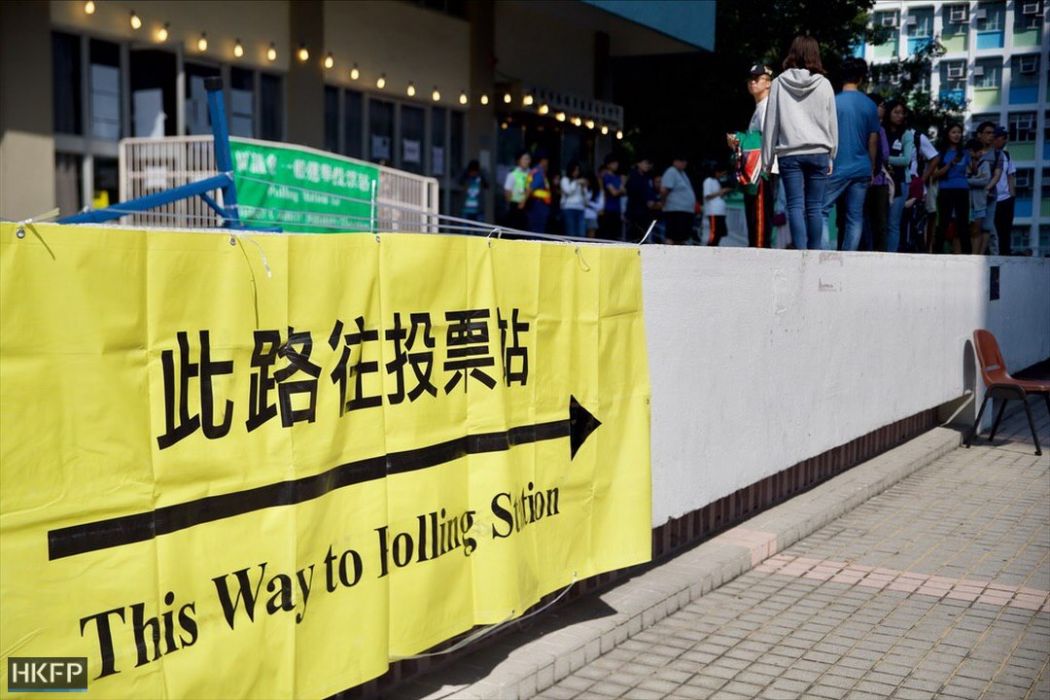
Otherwise, all past records were broken for turnout and results. Voters stood in hour-long lines at polling stations throughout the territory: unprecedented turnout, unprecedented results. The 18 councils that had all been dominated by the pro-establishment coalition were transformed overnight into pro-democracy strongholds. All but one emerged with pro-democracy majorities.
Overall, Hong Kong has a total of 4.13 million registered voters in a population of 7.5 million. Some 2.94 million went to the polls on November 24, with a turnout rate of 71 per cent, up from 47 per cent four years ago, which was itself an all-time record for the district polls.
Pro-democracy candidates received 1.6 million votes, or 55 per cent of the total, while pro-establishment candidates received 1.2 million or 41 per cent, with the remainder going to independents.
Message to Beijing
Total turnout was up because everyone was mobilised. Democrats were motivated to a greater degree than ever before by anger. Their opponents anticipated the threat and came out to defend their turf. They secured substantially more votes than in 2015. But their opponents were up by even more.
So, something is clearly wrong when 1.6 million law-abiding citizens turn out to vote for candidates who not only endorse the protesters’ five demands but are willing to disregard the violence undertaken in their name.
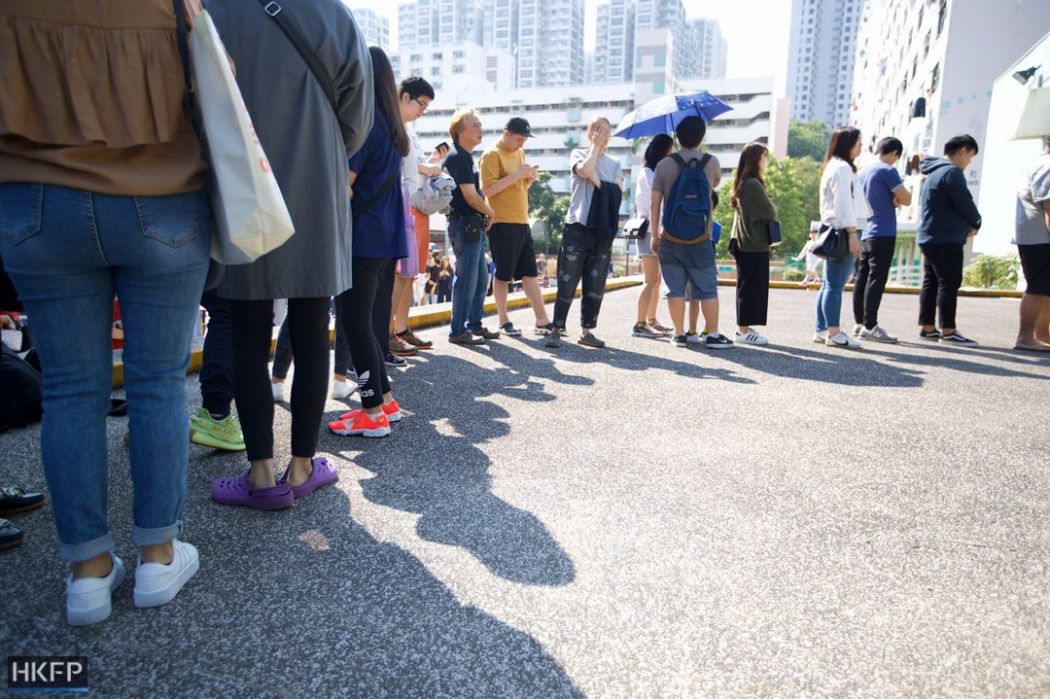
A week later, on December 1, a massive march was held to demonstrate solidarity with students’ destructive on-campus protests and affirm they would not be forgotten after the election victory.
On the Sunday after that, December 8, another even larger march commemorated International Human Rights Day along with the six-month anniversary of Hong Kong’s current protest movement. The main slogan of both marches and the movement itself: “Five demands, not one less.”
Of those demands, one was achieved in September, when a reluctant Chief Executive Carrie Lam finally withdrew the extradition bill that had sparked the furore earlier in the year. The proposed law would have allowed the transfer back to China of fugitives suspected of crimes allegedly committed there.
Lam had tried to fast-track it through Hong Kong’s unrepresentative legislature before the summer recess, which was what led to the sudden upsurge of protest momentum in June and July, as the only means of blocking the bill.
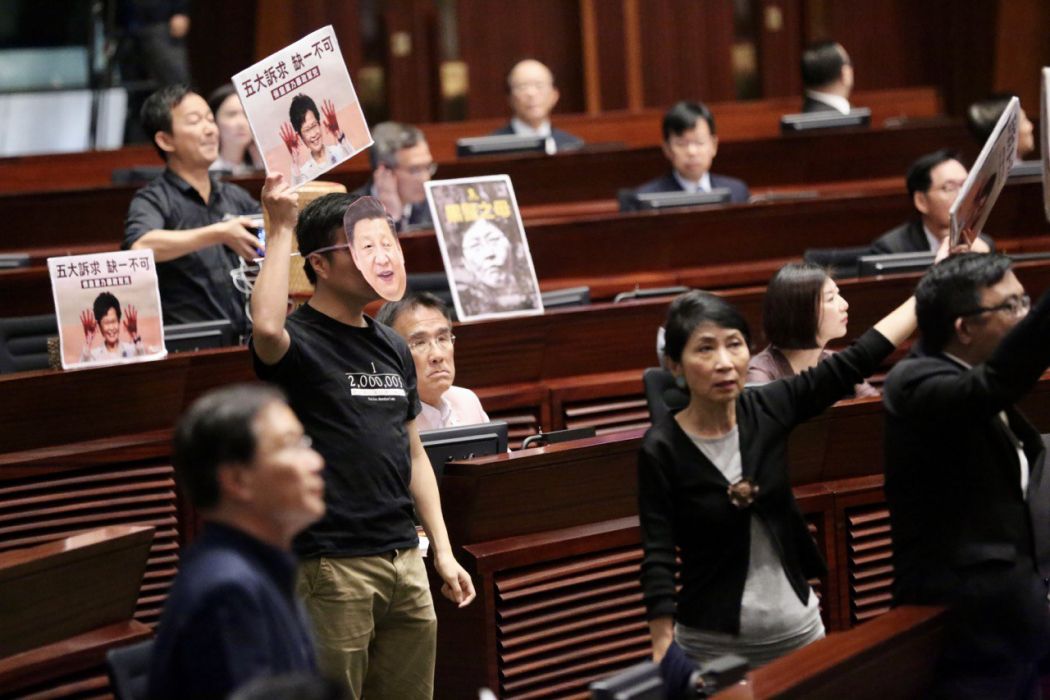
Three other demands are protest-related: about police brutality, the need for an independent investigative commission, and leniency for protesters. Another demand, for a now-withdrawn extradition agreement with mainland China to be axed, is actually where it all began.
Demonstrators are also demanding the resumption of Hong Kong’s universal suffrage election reform project, to fulfil promises made by Beijing in 1997.
That project was abandoned after democrats rejected Beijing’s 2014 decision mandating a mainland-style universal suffrage election for Hong Kong’s Chief Executives. It would have meant Beijing vetting the candidates, as first filtered by Hong Kong’s existing Election Committee, which is itself tailored to produce “safe” results.
Michael Tien was among the pro-establishment incumbents who lost their seats on November 24. In his case, he will scarcely miss it since he is not only a District Councillor, but also a directly elected member of Hong Kong’s legislature, or Legislative Council.

Tien is also a member of Hong Kong’s delegation to the National People’s Congress in Beijing. Candidates for this honour are nominated by Beijing and endorsed by the same Beijing-designed Election Committee currently responsible for endorsing Beijing’s choices for Hong Kong’s Chief Executives – the very same committee included in Beijing’s 2014 electoral reform mandate.
Michael and his brother James are members of the tycoon class that the British relied on and Beijing coopted to serve as ballast in its post-1997 administration.
Discussing the November 24 election afterwards, an interviewer asked him what happened. Tien said the public was dissatisfied and disappointed. He recalled the old saying Beijing leaders had used 20 years ago, to explain how post-1997 Hong Kong could go forward as a Special Administrative Region within the Chinese state.

Tien said his constituents were asking, what ever happened to the idea that “well water and river water should not mix”?
The saying had been used to signify Beijing’s promises about Hong Kong autonomy. Now, said Tien, people say all they hear about is Beijing’s “comprehensive jurisdiction.” Beijing officials have taken to using this term, especially since the 2014-15 electoral reform defeat.
The term is used to signify the central government’s sovereign right to decide everything that matters politically, while Hong Kong courts and its government are bound to obey.
The message is clear enough. Tien said because it is Hong Kong’s only one-seat-per-constituency, first-past-the-post, winner-take-all election, the District Councils poll is Hong Kong’s best barometer of public opinion.
Consequently, the election should be seen as a rebuke, not necessarily directed against Beijing’s authority, but against the way Beijing is choosing to exercise it.
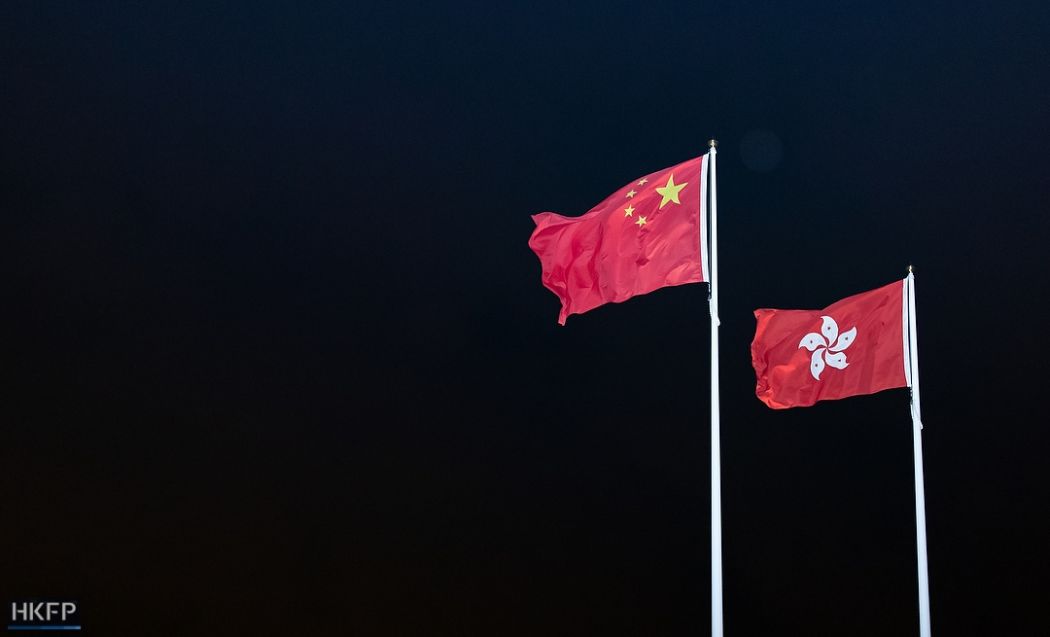
Promises made in 1997 have not been kept. Instead, they are evolving into something like an ill-disguised form of direct rule from Beijing, with the imposition of mainland-style political rules, standards, definitions, and Beijing-designed election committees that can be counted on to perform as required.
Tien said the need for an official response is urgent. People have concluded that peaceful means are useless in the struggle against Beijing’s growing impositions. So they resort to violence.
Since the public has now endorsed candidates who supported the protest movement, Tien worries that there will be no end to it unless the government begins to address the actual sources of public discontent. He recommends an independent investigation and a resumption of the electoral reform debate.
Beijing’s response
Lam has provided few clues. She said only that the people have spoken, and her administration must reflect on its performance. Before the election, officials had spoken only of deep-seated social and economic sources of discontent.
She may be clueless, but Tien is not, and he is in a position to take the message directly to Beijing. There are many others. So, it cannot be said that no one here or there understands what’s wrong.
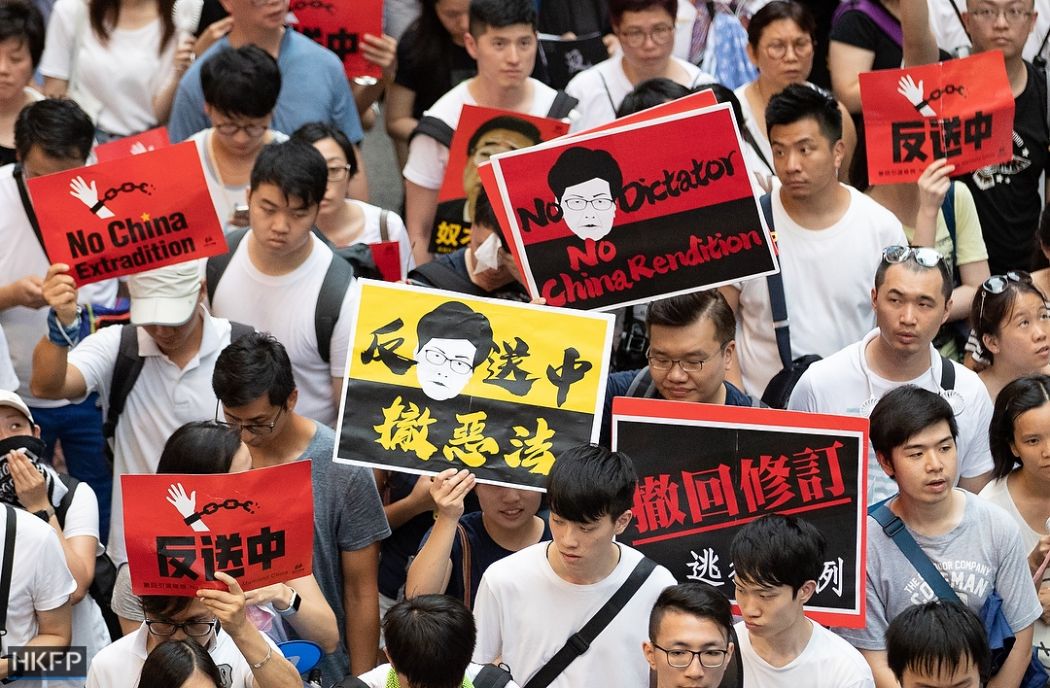
But if official statements are any indication, it is as though November 24 never happened. The voters may have spoken, but Beijing seems determined not to compromise its sovereign authority by deigning to acknowledge what they were trying to say.
Chinese state media did not report the election results. Even the basic announcement was delayed, perhaps because something very different had been expected. Readers learned only that a Hong Kong election was held amid violent protests and the police helped maintain order. Initial statements did not venture beyond stating the well-worn theme that Hong Kong is part of China. This obvious fact probably requires some explanation.
In Beijing’s eyes, elections give decision-making power to voters, or at least to their elected representatives. To say they have spoken, and the government aims to heed what they say would make the people sovereign.
Communist Party rule means all such power belongs to the party as the people’s only rightful representative – probably this is the reason for Carrie Lam’s truncated response.

To suggest otherwise has been called in past arguments “tantamount to treason.” For now, Beijing is avoiding the rhetorical flourishes and only dismissing all such ideas as manifestations of “separatism.”
Separatism means refusal to accept the Communist Party-led central government as the legitimate decision-making authority for all of China, including Hong Kong. Consequently, large numbers of Hong Kongers are in a state of insurrection because they are resisting decisions made by the Chinese government, constantly questioning and pushing back against its “comprehensive jurisdiction.”
The rejected 2014 decision on electoral reform is a key case in point. That same resistance is carrying over into the “five-demands” of the current protest movement. Only insurgents and rebels presume to make such demands.
The first actionable response came from Hong Kong’s Secretary for the Civil Service. He said the government was considering a proposal by pro-Beijing Legislative Councilor Regina Ip, famous for leading the government’s 2003 campaign to pass national security legislation. It met the same fate, amid mass protests, that has befallen Carrie Lam’s extradition bill.
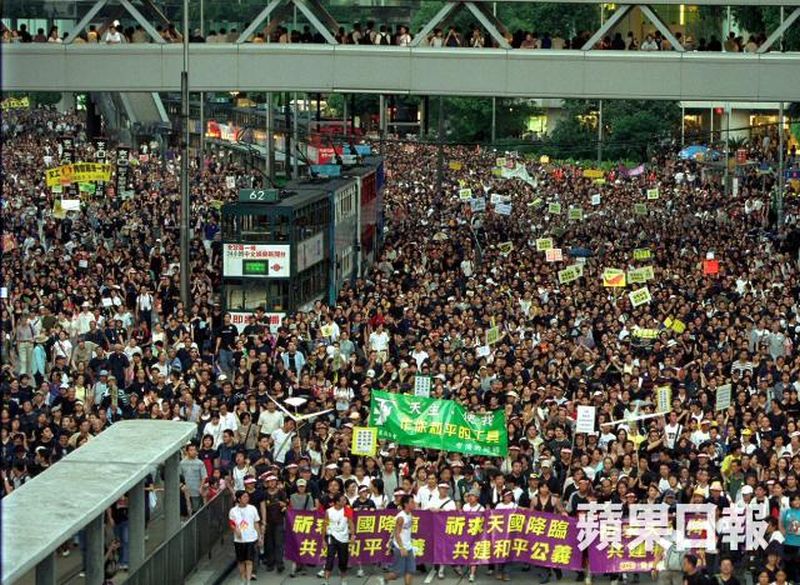
The proposal is for all 180,000 members of Hong Kong’s civil service to be required to take the same loyalty oath now mandated for all government officials and legislators.
The oath-taker pledges to uphold Hong Kong’s Beijing-mandated governing principles, the One Country, Two Systems formula, and so on. Many civil servants are known to have violated such rules by demonstrating support for the protest movement. Taking the oath will make them obliged to uphold Hong Kong’s established political order.
At an event celebrating China’s constitution, officials called for strengthening political education among civil servants and young people. Appreciation for Hong Kong’s One Country, Two Systems governing principles was obviously inadequate.
Too many people still did not understand that Hong Kong’s own Basic Law mini-constitution derives its authority from China’s national constitution. National sovereignty is the foundation of Hong Kong’s Special Administrative Region autonomous status.
At another event, celebrating nearby Macau’s 1999 return to Chinese rule, Hong Kong was told to emulate the placid former Portuguese colony. Its citizens have had no difficulty accepting Beijing’s “paramount power,” and never resist anything. The speaker was Li Zhanshu. He currently heads the National People’s Congress, source of many decisions that have sent Hongkongers out onto the streets.

The most direct response came not from Beijing but from Hong Kong’s last Chief Executive, Leung Chun-ying. He was denied a second term, in 2017, probably because of the constant controversies he provoked. But he was rewarded with a high honorary post in Beijing and now speaks out regularly on its behalf.
This occasion was a kind of in-your-face payback of the sort he seems to relish. Last year, he joined in the official campaign against the Foreign Correspondents Club for hosting a talk by Hong Kong independence advocate Andy Chan.
On November 28, Leung gave a talk there himself. He used it to target both local and international listeners in the wake of Hong Kong’s November 24 election.
Leung naturally couldn’t resist blasting the Hong Kong Human Rights and Democracy Act, just passed by the United States Congress. He said it made Hong Kong a pawn in the United States’ drive to contain China. But his main ire was reserved for the protest movement, and the November 24 election, and the “misunderstandings” of all who championed both.

He said it is “senseless and irresponsible” for people here and elsewhere to think that Beijing would heed the demands of such a protest movement. He said full autonomy for Hong Kong is out of the question, and so is “local democracy that has all the hallmarks of a sovereign democracy.”
Voters must not be allowed to think they have the right to rule themselves. Leung said the kind of universal suffrage protesters demand, without Beijing’s involvement, is essentially secession.
Leung said that was what the 2014 Occupy-Umbrella Movement wanted and now the last of the protesters’ five demands has picked up where the other left off. They are both exactly the same.
Margins for manoeuvre?
Probably there are many options, some in plain sight, others lurking in hidden corners. Both sides, Beijing and Hong Kong democrats, contemplate the political arena and see especially the roadblocks. Yet these can be made to work both ways.

Frozen in Leninist time as it is, Beijing is actually in the more difficult position: dogmatic and inflexible with few options. This is the world of Leung Chun-ying.
But Beijing’s current supreme leader was born in 1953. The party had just emerged victorious from the old base areas and his father was one of the revolution’s heroes in that venture. The younger generation was reared on the writings of Chairman Mao, his record of the party’s rise to power.
So Xi Jinping must know all about mass movements and their value in confronting challenges when there is no other way. He must recognise in Hong Kong’s November 24 election and protest movement the same kind of strength that has served his party so well.
But Xi is also a man of the 21st-century and Hong Kong is playing a 21st-century role in his ambitious plans for China’s rejuvenation. Forcefully crushing Hong Kong’s protest movement will come at great cost and destroy Hong Kong’s place in those plans.
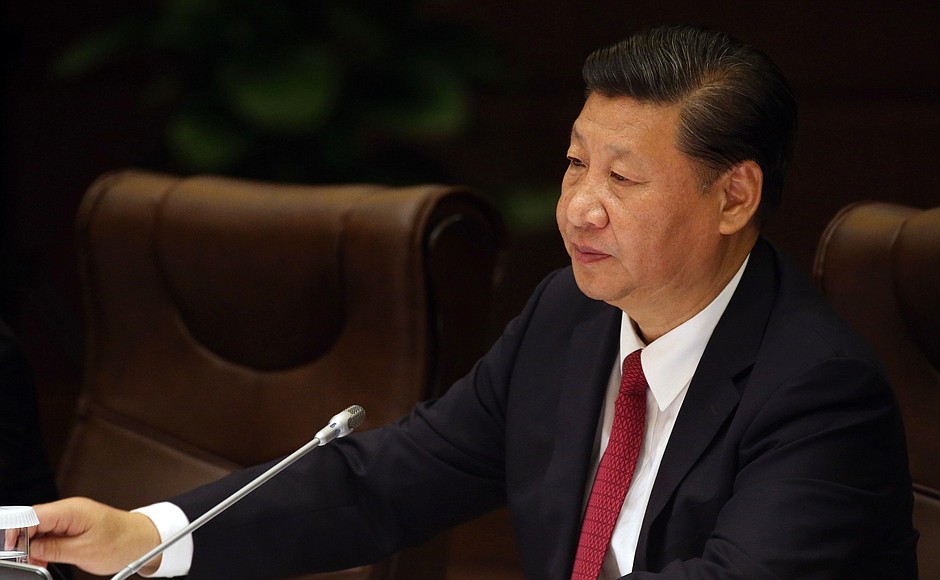
That means he must consider other less drastic options. Yet the strength of Hong Kong’s protest movement will place limits on those as well. One of the first things China’s “Hong Kong experts” mentioned after learning of the election results was the difficulty Beijing would encounter in naming a new Chief Executive.
As a result of their District Councils landslide victory, democrats would now have substantially more members on the Election Committee that must endorse Beijing’s Chief Executive choices.
What if Beijing’s choice is rejected? That has never happened before. Now it might. But the experts also understood that if Beijing just went ahead and appointed someone without the Election Committee formalities, protesters would be out on the streets again in no time.
